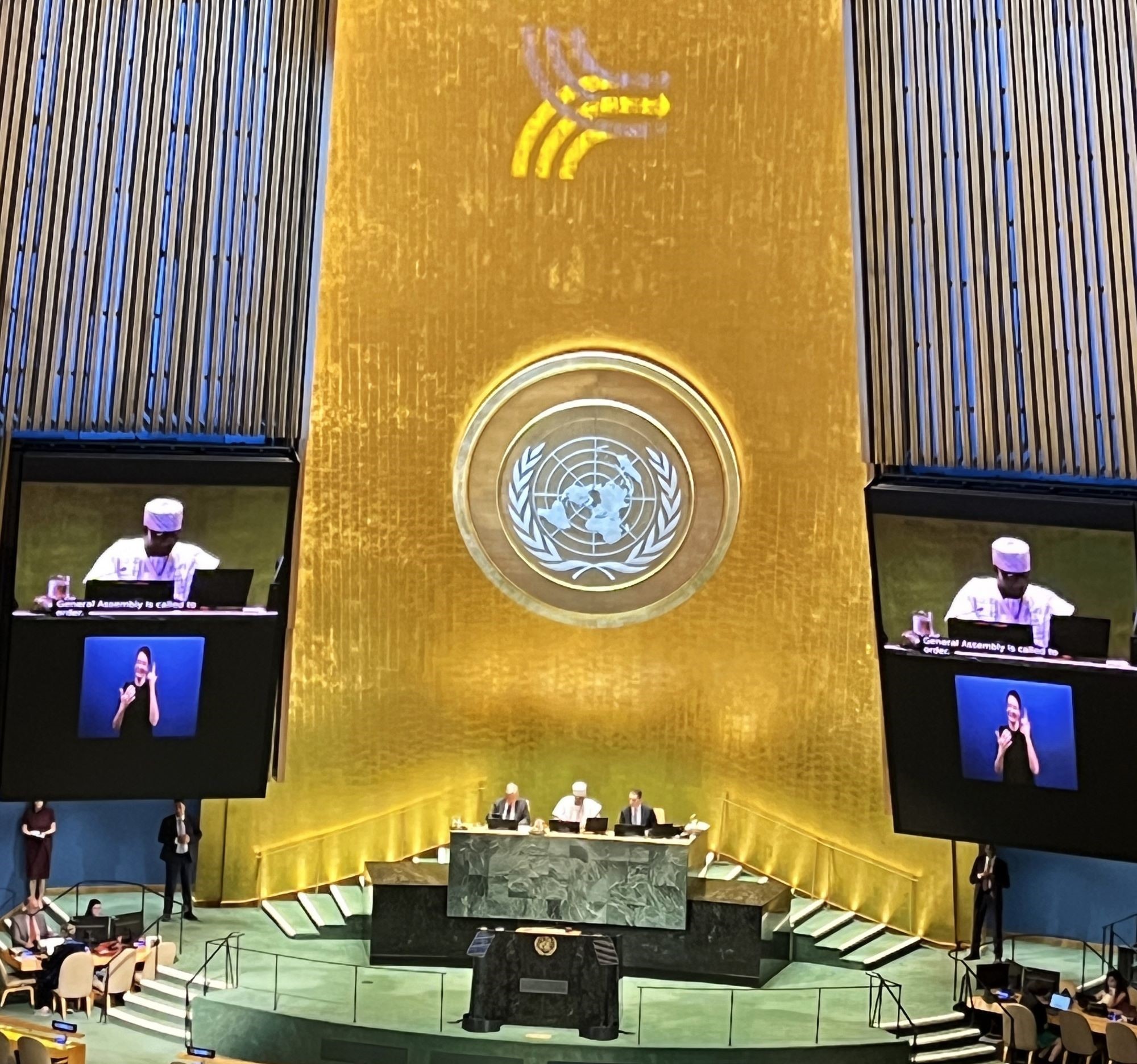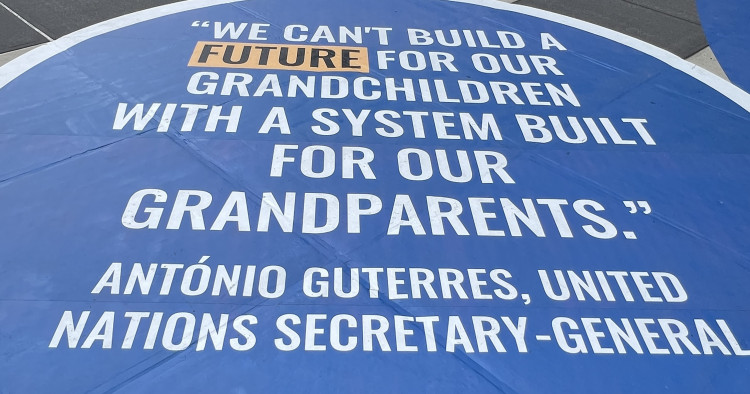On Sept. 22-23, I was honored to be in the United Nations General Assembly Hall representing the Middle East Institute as the landmark Summit of the Future (SOTF) convened. At the Summit, the more than 190 UN member countries agreed to unprecedented new commitments on behalf of future generations, and they pledged to build a long-term future perspective into their mechanisms of governance, domestically and multilaterally.
Accelerating work on the Sustainable Development Goals (SDGs), approved in 2015, is one such pledge — with an important step-change in financing for their implementation, including through an SDG Stimulus. Other highlights outlined in the summit’s main outcome document, titled “Pact for the Future,” include measures to reduce global disparities in science, technology, and innovation; a Global Digital Compact, the first global commitment to digital public goods and digital public infrastructure, with particular focus on the Global South; and a Declaration on Future Generations.
 Hundreds of civil society organizations were represented at the proceedings in New York — an unprecedented level of non-state actor engagement on these issues within the UN format. Hopefully, this will encourage recognition among leaders and policymakers around the world that the civil society sector is out in front of governments on the urgency, and the practical “how to,” of building futures perspectives into how decisions are made and implemented today.
Hundreds of civil society organizations were represented at the proceedings in New York — an unprecedented level of non-state actor engagement on these issues within the UN format. Hopefully, this will encourage recognition among leaders and policymakers around the world that the civil society sector is out in front of governments on the urgency, and the practical “how to,” of building futures perspectives into how decisions are made and implemented today.
All these participating organizations were invited to submit an “intervention” they wished to make on the floor of the UN and enter into the record. With so many of us present, the agenda understandably was able to fit only a fraction. This is what I had prepared and would have said:
Intergenerational fairness is framed as ensuring that decisions and actions our governments take today address the needs of current generations without comprising the ability of future generations to meet their own needs.
It is essential that we begin with this Summit to invert that premise and that we hold policymakers accountable to make decisions today that safeguard the interests of future generations, without comprising current generations’ ability to meet our needs.
A growing number of national and sub-national governments are exploring creating positions mandated to represent future generations. The time for exploring is past — it is time to create these roles and let those appointed get to work. It should begin here with the creation of an empowered, resourced UN Special Envoy for Future Generations.
Our future generations’ representatives’ charge is to foster intergenerational solidarity in safeguarding tomorrow for future and present generations alike. Part of that charge should be to work with multi-sector partners to facilitate “participatory futures” efforts in their countries. Such efforts are an essential investment in putting roadmaps of actions in the hands of our leaders in every sector that are both visionary and practical at the same time.
As I represent an organization devoted to promoting positive futures in the Middle East and North Africa, I believe this is especially important in that region. People under 30 constitute more than half the MENA population — they are a present generation, and they are the generation of the region’s future. The MENA population will continue to grow rapidly for several decades. Policymakers and legislation accountable to those generations, and participatory future visioning, will be among the keys to seeing this vital part of our world thrive.
Just two weeks after the SOTF proceedings, there were indicators that the UN secretary-general would be appointing a future generations special envoy imminently. This position will be a critical building block of the accountability that organizations across the public, private, civil society, development, and philanthropic sectors must advocate and work for — a first next step among many such needed steps.
In the Strategic Foresight Initiative program here at MEI, we will continue our efforts to explore the futures (plural) of the Middle East and North Africa, including futures in which real action on the Summit of the Future commitments produces transformative effects for the countries and people of the region.
Steven Kenney is the director of the Strategic Foresight Initiative at the Middle East Institute. He is also the founder and principal of Foresight Vector, a strategy consultancy, and a partner at WhiteLabel Impact.
Photo courtesy of the author
The Middle East Institute (MEI) is an independent, non-partisan, non-for-profit, educational organization. It does not engage in advocacy and its scholars’ opinions are their own. MEI welcomes financial donations, but retains sole editorial control over its work and its publications reflect only the authors’ views. For a listing of MEI donors, please click here.













